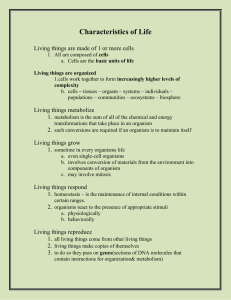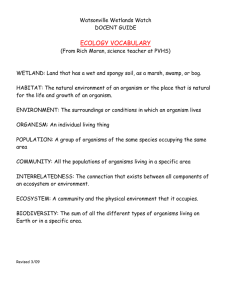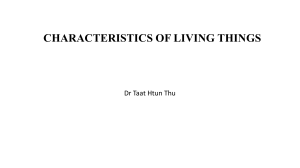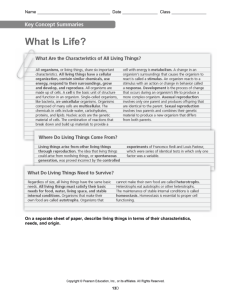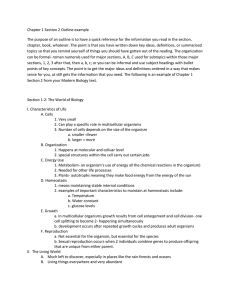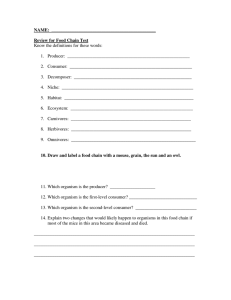Characteristics of Life: PreAP Biology Presentation
advertisement
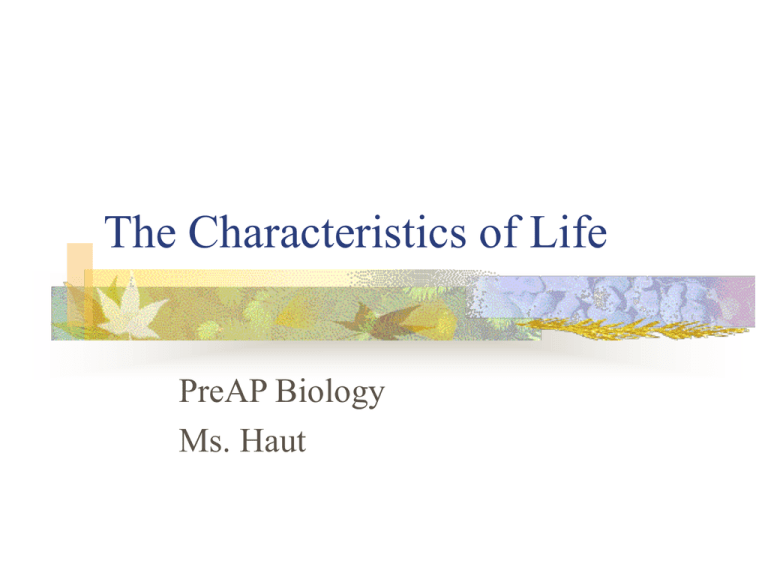
The Characteristics of Life PreAP Biology Ms. Haut Biology Study of life Biologists recognize that all living things share certain characteristics Characteristics of Life 1. Order All living things made of one or more cells Cells are the smallest unit capable of all life functions Life at Its Many Levels Biologists explore life at levels ranging from the biosphere to the molecules that make up cells. Figure 1.3 2. Regulation Maintenance of stable internal conditions despite changes in external conditions (Homeostasis) homestudy.ihea.com/wildlifeID/0 43jackrabbit.htm Characteristics of Life Characteristics of Life 3. Growth and Development DNA directs pattern of growth and development Pattern of growth characteristic of species www.antarcticlife.com/.../emperor-penguin.html Characteristics of Life 4. Energy Utilization Sum of all chemical reactions carried out in an organism (Metabolism) All energy originates from the sun Plants convert solar energy into sugar Animal use/store energy in own tissues Characteristics of Life 5. Response to the Environment Organisms have evolved to live and interact with other organisms (Interdependence) Ecology is the study of interactions of living organisms with one another and their environment Food webs Respond to stimuli Each organism interacts continuously with its environment. Both organism and environment are affected by the interactions. The dynamics of any ecosystem depend on two processes: Cycling of nutrients Flow of energy Figure 1.4 6. Reproduction Process of making more of one’s own kind No organism lives forever; necessary part of living Heredity Passing of traits from parent(s) to offspring Genes are inherited from parent(s) www.blue-room.com/animals/rosie/ Characteristics of Life Characteristics of Life 7. Evolution Change over time New species (group of genetically similar organisms that can produce fertile offspring) can develop over time if enough changes occur Natural selection— survival of the fittest Figure 1.11



